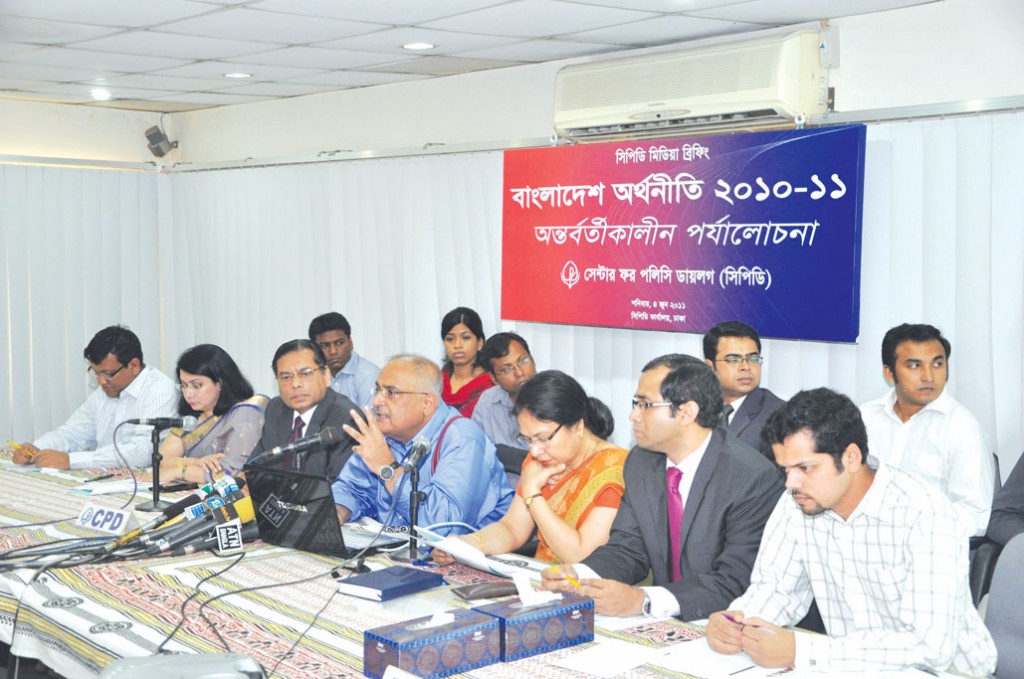The report on State of the Bangladesh Economy in FY2010-11 (Second Interim Review) was released to the press on 4 June 2011 at the CPD office. Dr Debapriya Bhattacharya, Distinguished Fellow of CPD made the presentation on behalf of the CPD-IRBD Team. Analysing the stated level of investment, CPD observed that the GDP growth for FY2010-11 turns out to be about 6.3 per cent instead of 6.7 per cent as estimated by the Bangladesh Bureau of Statistics (BBS). “Stagnating gross investment level producing a spectacular 6.7 per cent growth may prompt us to term the phenomenon as investment-less growth,” commented CPD.
Reviewing the trend of ADP implementation, CPD identified that some structural discrepancies are hindering ADP performance. Dr Bhattacharya recommended for sustainable ADP financing and a task force to operationalise ODA pipeline. He also suggested implementation of 16 PPP projects, included in the ADP, through consultation with the investors. He also stated that the current situation of the financial sector in Bangladesh is an inefficient one driven by less prudent decisions and poor governance which has jeopardised the stability of the whole financial system. Given the critical role of the financial sector towards fostering economic growth, the sector has to be managed more effectively through strengthened oversight function of the Bangladesh Bank and deployment of coordinated measures, the study suggested. Identifying the macroeconomic prospects and challenges for FY2011-12, he presented thirteen lessons learnt from last years’ experience. Regarding overhauling of the capital market, the CPD study identified few challenges which include: maintaining financial discipline in the money market and strengthening its coordination with the capital market, investigation of fraudulent and illegal activities, restructuring and reform of the SEC and DSE/CSE, minimising agency problems involving various stakeholders, enforcement of rules and regulations in the SEC, and strengthening the legal base of the capital market.
Regarding inflation, prices and food security, CPD suggested: creation of a Department of Market Surveillance (DMS) to supervise the daily essential commodity markets, strengthening of the TCB which still remains an unfinished agenda, higher boro procurement, and widening SSNPs to ease the burden of price hike. On energy and power sector, the study proposed to strengthen the capacity of BAPEX to explore and extract local energy resources. The CPD study noted that in FY 2010-11, subsidy payments accounted for around 4 per cent of GDP, and subsidy-related expenditures are expected to increase further in the coming fiscal year. CPD also observed that sustainability of the current high growth in export depends on the ability to go for efficiency enhancing production measures, catering to high-priced and high value-added items, enhancing south-south trade, and getting Bangladesh strongly placed in the context of the ‘China plus one’ policy pursued by major buyers. It also stated that maintaining double digit growth of 16.0 per cent in the MTMF is possible if Bangladesh can successfully address the aforesaid challenges.




